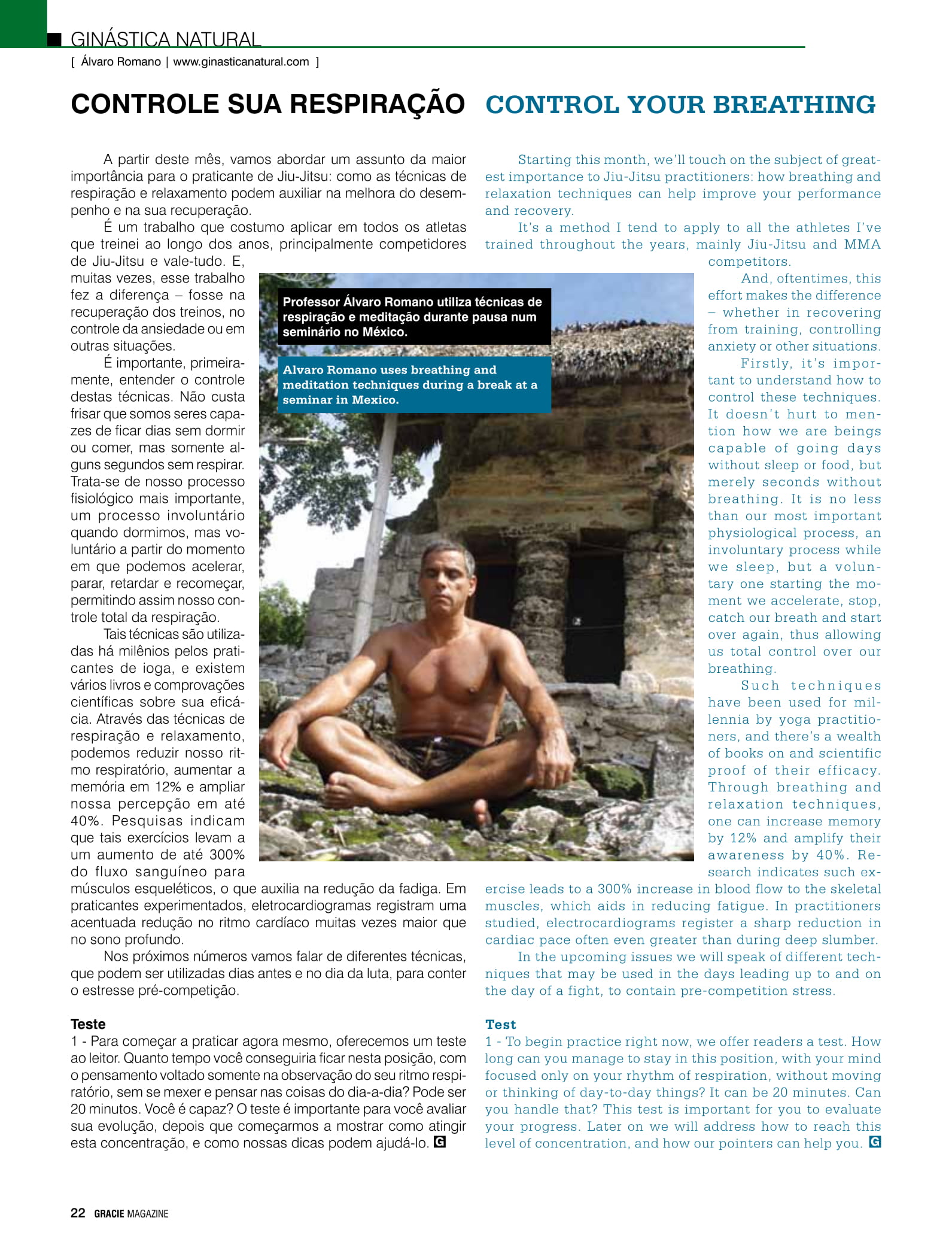[First published in 2009.]

By Álvaro Romano
Starting this month, we’ll touch on the subject of greatest importance to Jiu-Jitsu practitioners: how breathing and
relaxation techniques can help improve your performance
and recovery.
It’s a method I tend to apply to all the athletes I’ve
trained throughout the years, mainly Jiu-Jitsu and MMA
competitors.
And, oftentimes, this
effort makes the difference
– whether in recovering
from training, controlling
anxiety or other situations.
Firstly, it’s important to understand how to
control these techniques.
It doesn’t hurt to mention how we are beings
capable of going days
without sleep or food, but
merely seconds without
breathing. It is no less
than our most important
physiological process, an
involuntary process while
we sleep, but a voluntary one starting the moment we accelerate, stop,
catch our breath and start
over again, thus allowing
us total control over our
breathing.
Such techniques
have been used for millennia by yoga practitioners, and there’s a wealth
of books on and scientific
proof of their efficacy.
Through breathing and
relaxation techniques,
one can increase memory
by 12% and amplify their
awareness by 40%. Research indicates such exercise leads to a 300% increase in blood flow to the skeletal
muscles, which aids in reducing fatigue. In practitioners
studied, electrocardiograms register a sharp reduction in
cardiac pace often even greater than during deep slumber.
In the upcoming issues we will speak of different techniques that may be used in the days leading up to and on
the day of a fight, to contain pre-competition stress.
test
1 – To begin practice right now, we offer readers a test. How
long can you manage to stay in this position, with your mind
focused only on your rhythm of respiration, without moving
or thinking of day-to-day things? It can be 20 minutes. Can
you handle that? This test is important for you to evaluate
your progress. Later on we will address how to reach this
level of concentration, and how our pointers can help you.
